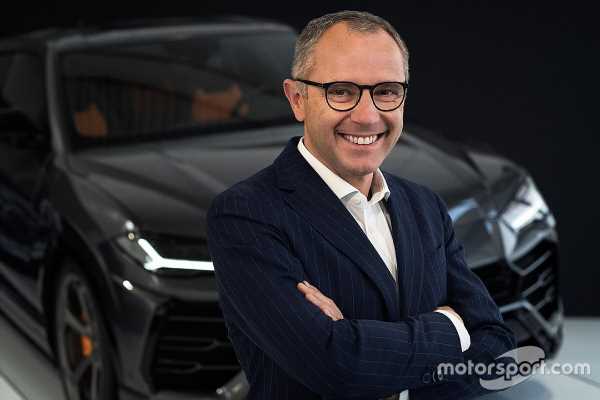Formula 1 CEO and president Stefano Domenicali is confident the series can prove electrification is not the only sustainable future automotive power solution, believing hybrids have “a great future”.
F1 has raced with V6 hybrid power units since the start of the 2014 season, moving away from naturally-aspirated V8 engines in a bid to make itself more road relevant for manufacturers.
Although the hybrid route has widely been regarded as the right one for F1, the high cost and complexity of the current power units has been a constant source of criticism.
The next generation of power units is currently planned for 2026, but looks set to be brought forward to 2025 when a simpler, cheaper design is expected to be taken.
But amid F1’s heightened focus on sustainability and its environmental impact, new chief Domenicali felt the platform could be a great showcase for hybrid technology, showing manufacturers there are alternatives to electrification.
“Sustainability can be seen on a CO2 dimension, or [with] a lot of other things related to it, but let’s focus on the emissions or technology,” Domenicali said in an interview with Sky Sports F1.
“I think Formula 1 has a great future to showcase that there is not only electrification in the automotive world. I think that hybridisation is a great path, and will have a great future.
“Formula 1 has to use this to make sure the OEMs will invest, in order to show that there is this way of being sustainable in a different way.
“That is something that I want to focus the attention of the teams and the OEMs on for the future, with a big attention on cost.
“The mistake that was done in the past was related to putting only technology at the head of the priority and not the cost.”
F1 currently has four manufacturers producing power units – Mercedes, Ferrari, Honda and Renault – but is set to lose Honda at the end of this year after the Japanese marque announced its plan to quit a few months ago.
Domenicali said that while the technology and efficiency of the F1 power unit was already highly attractive, the series had to ensure its future solutions still offered road relevance.
“We have to make sure the hybrid technology that will be used has relevance for the road cars, but will also start from a very different investment and cost base,” Domenicali said.
“It’s not possible that a power unit in Formula 1 can cost what it’s costing today. I think there is a big margin on that.
“One of the big objectives we have is that we’d like to involve teams and OEMs to try to anticipate the new engine even earlier than what is expected in the new regulations, and make sure that these kinds of things will be part of the agenda.
“I’m sure we can do it.”
Related video
Source: Read Full Article

